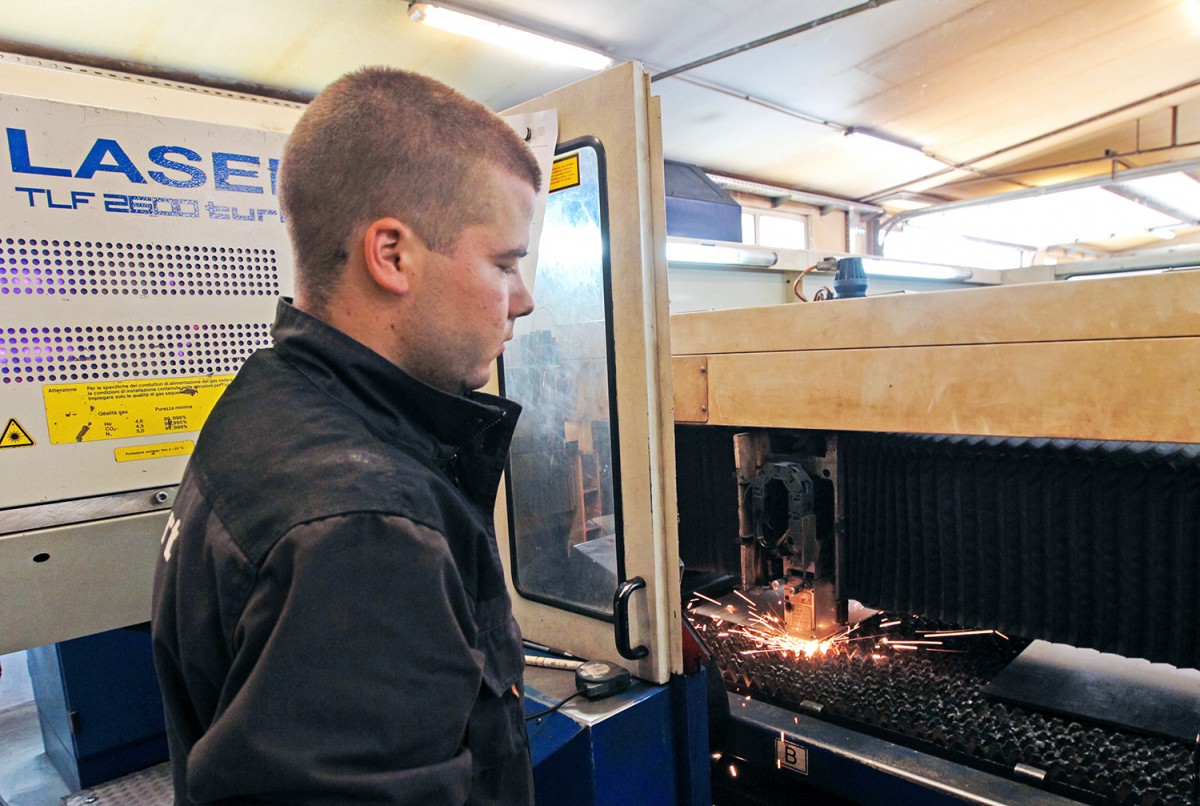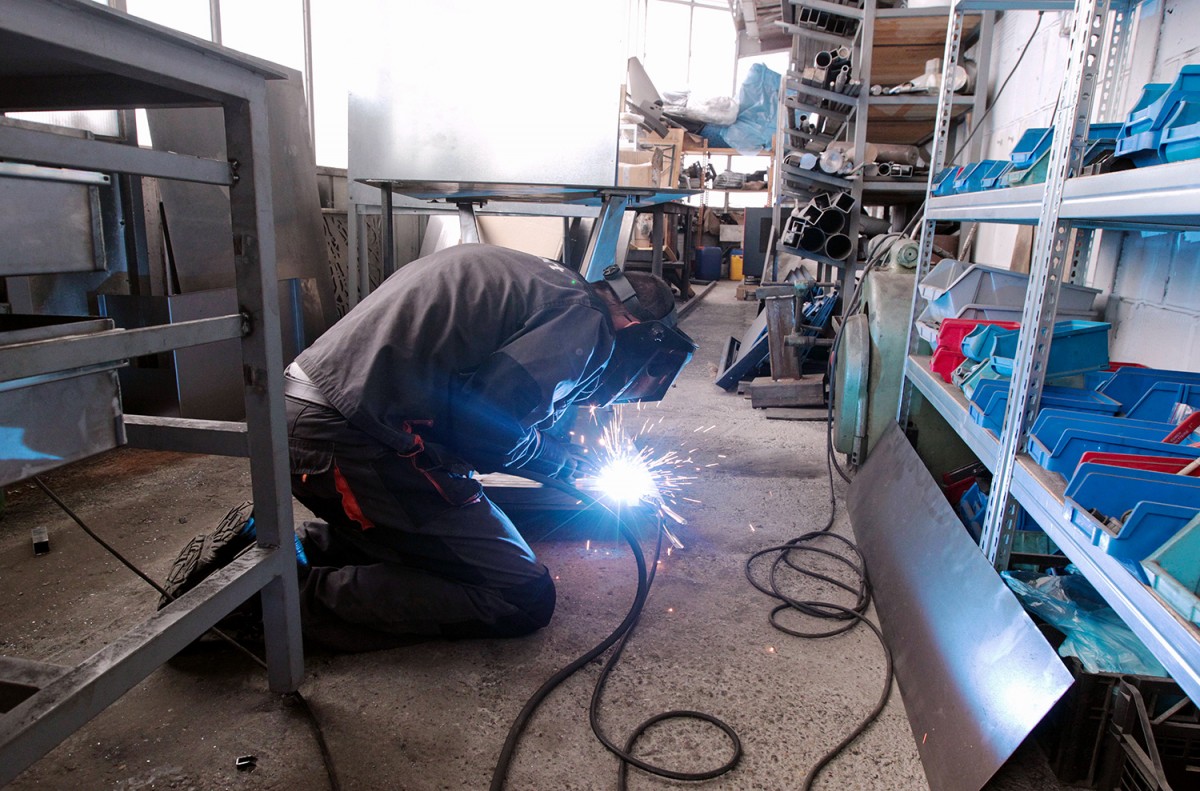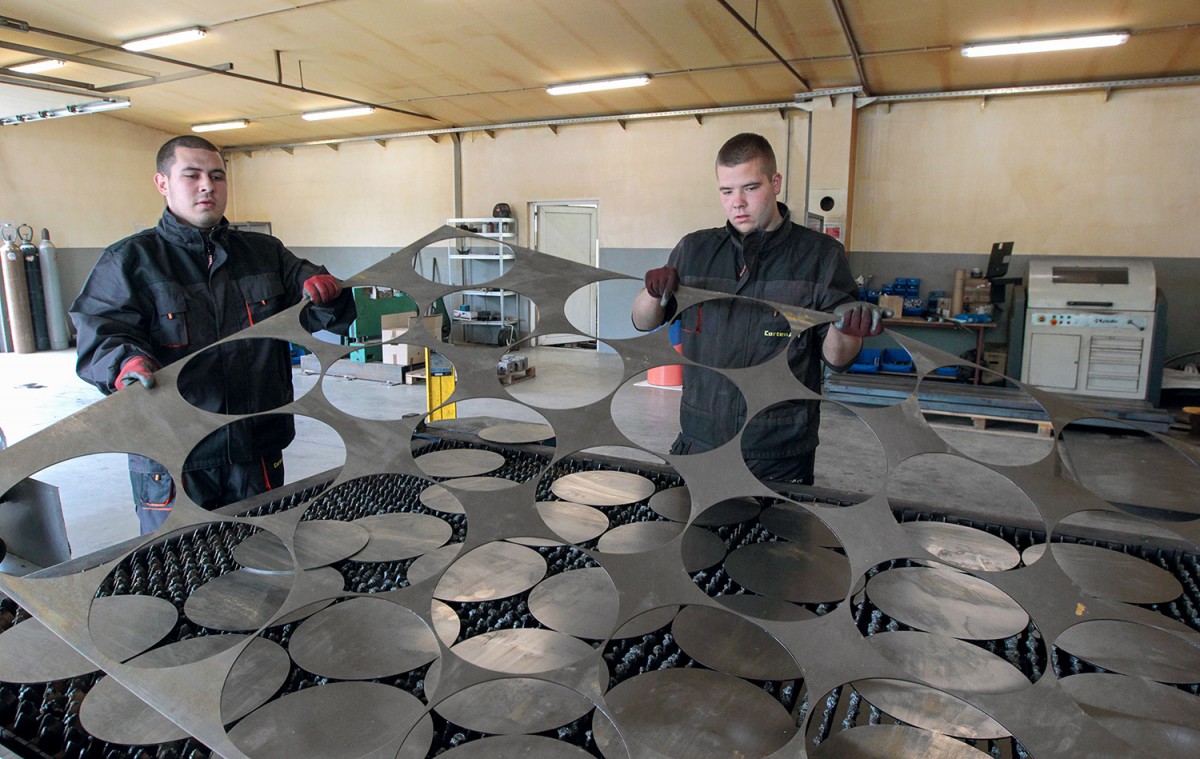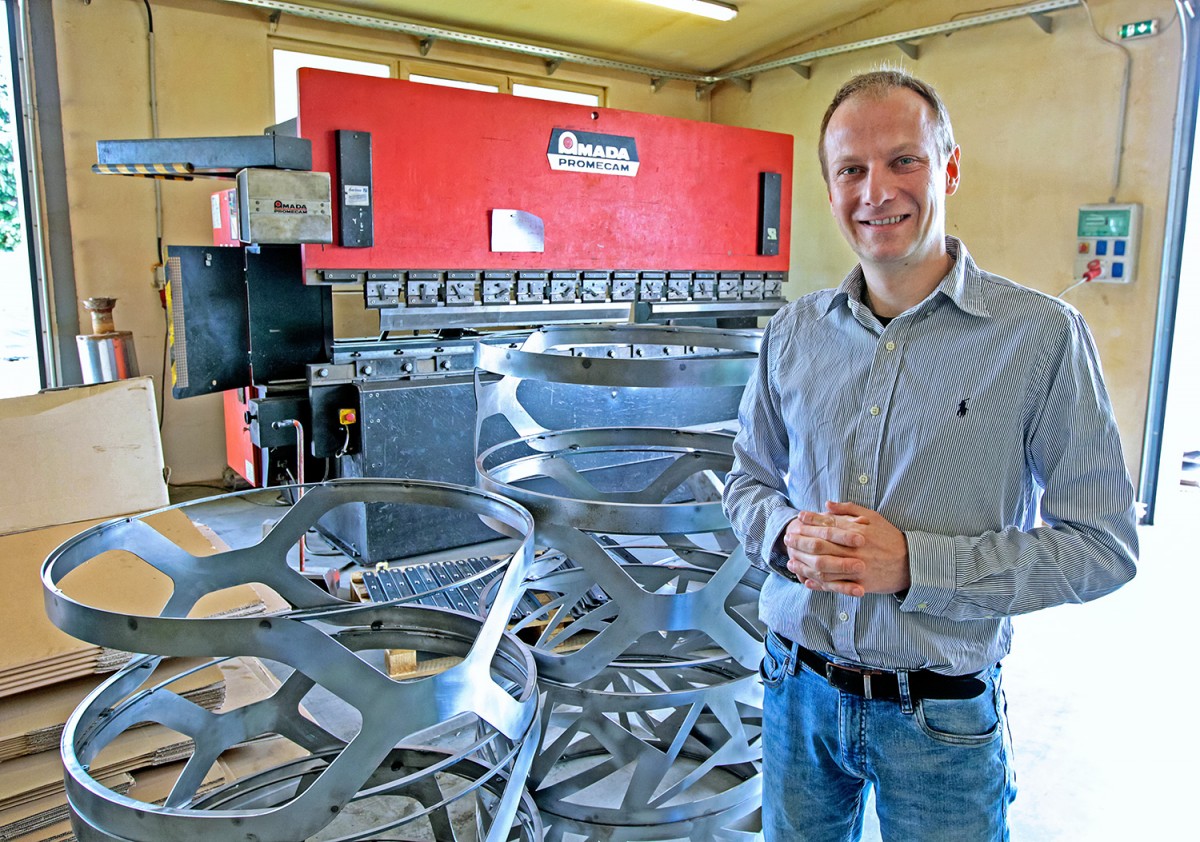Šabac, 15 July 2019
The art of laser cut steel business
This young company, specialised in the design, development and production of laser-cut metals primarily supplies the market with interior and exterior steel furniture. Although not direct exporters, their products are predominantly sold in Switzerland, Germany, Austria and Italy. The company was registered in July 2017, but, according to its owners, the idea had long been in the making.
"I wanted to start an independent business as early as 2005 when I was studying at the Faculty of Mechanical Engineering in Belgrade," says Bojan Lolić, one of the three owners and director of the company Corten Art. "However, before this venture I spent close to a decade in a large system, learning and building my professional credibility together with my current business partner. This experience has helped us tremendously in establishing and running our own company. "
They transitioned to private sector without rush or qualms - strategically, with a well-elaborated business plan, a financial construction and, according to one of the partners, Igor Pavlović, without looking back. The third partner, Nenad Tovarović, backed the venture with his own capital.
Part of the envisaged long-term approach was to strengthen production capacities by capitalising on opportunities offered through the existing business development programmes. The partners continuously looked for suitable public calls aimed to provide support to entrepreneurship and unceasingly applied with tailor made business plans. The approach paid off and before the companies second birthday, the European Union, through the EU PRO development Programme, provided 15,000 Euros for machines that will help them expand their production.
"New machines will enable better quality of products, we will eliminate subcontractors and avoid transportation costs," Lolić says, adding that although the contractual obligation stipulated hiring of one employee, due to the increase in production, two new workers will now join the already four strong team. In addition to creating new jobs, and as part of the mandatory corporate social responsibility activities, the company will equip the playground of the nearby kindergarten.
The company plans to further expand in the next three years, possibly through recapitalisation by a foreign or domestic investor. The main motive is to relocate production to Šabac's newly developed north-western industrial zone, another EU PRO project, financed by the EU. The relocation will allow increase in production, resulting in higher export and ultimately the creation of new jobs.
According to Lolić's words he found what he was looking for in private business - a less stressful, more creative version of his previous job. "The big industry requires a huge degree of responsibility and always revolves around someone else's capital, which is stressful for employees. Now our work blends art and high technology, which makes our products unique and competition limited."
Lolić recommends that those who still hesitate to seek support from the European Union funds should definitely put in the effort. "Develop a good business plan, look at the broader picture and follow the calls for support of projects. Opportunities abound in many sectors, however it's up to you to take advantage of them," concludes Lolić.
The EU support greatly contributes to companies developing their strategic goals and improving their business. Creating a favourable environment generates opportunities for new jobs and overall community development. The EU has allocated a total of 25 million Euros for the three-year programme EU PRO, which began in January 2018, out of which 4.5 million for the improvement of entrepreneurship.






